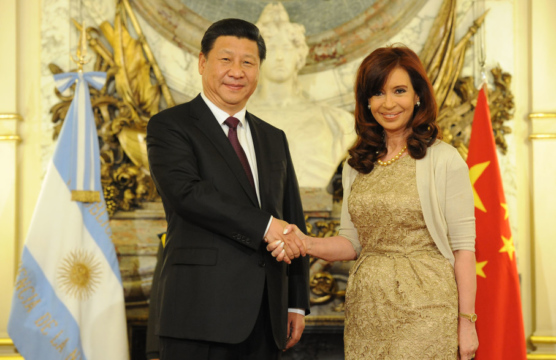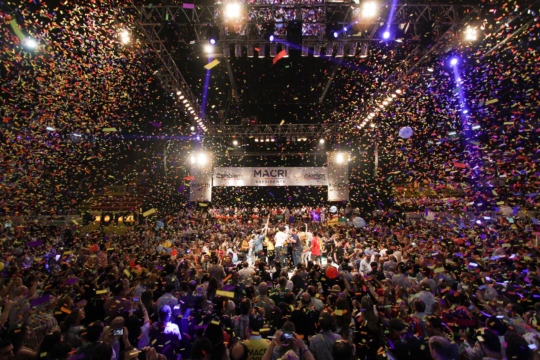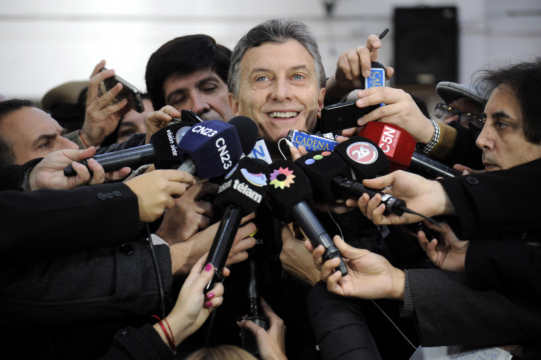
Lessons in Public Relations for China & LAC
China reacts to perceived missteps in its relations with Latin America.
This post is also available in: Spanish
On the night of November 14, Argentine President Alberto Fernández euphorically celebrated an electoral defeat. Earlier that day, in the legislative elections, the ruling Peronist coalition –Frente de Todos– (FdT) obtained only 33.5 percent of the national vote against 42 percent of the opposition coalition Juntos por el Cambio (JxC). Additionally, Peronism lost control of the Senate for the first time in more than three decades. Why was the president celebrating, then, apart from lifting the spirits of Peronist supporters?
First, that although without a majority, the FdT continues to be the most important force in the Senate and the Chamber of Deputies. In both chambers, Peronism hopes to win the support of small parties, many of them linked to provincial governors inclined to negotiate laws in exchange for a larger share of the national budget and more public works in their territories.
More importantly, Fernández breathed a sigh of relief as the FdT slightly increased its level of support compared to the September primary elections, which was an unexpected catastrophe for the government. Notably, the FdT regained control over the strategic province of Buenos Aires, its traditional bastion of support. While in the primaries JxC obtained 4 percent more than the FdT, this past Sunday the difference was only 1 point thanks to higher electoral participation. Peronist sectors got their supporters out to vote. Facing the presidential elections of 2023, Alberto Fernández alluded to the need to have party primaries, thus moving away from handpicking candidates, as Cristina Kirchner did in 2019, and indicating the need to distribute power within the Peronist coalition.
Back in September, the defeat in the primaries had put the FdT on the brink of collapse: Vice President Cristina Fernández de Kirchner – leader of the most important faction within the coalition – publicly threatened to break with the government if the president did not implement urgent changes. Under pressure, Fernández changed his cabinet and increased public spending, but he feared that a similar defeat in the November elections would mean the end of his government. The relationship between the president and his vice president was severely damaged, but their troubled alliance will endure, at least for the time being.
So far, Argentina seems to be on the opposite track of its Latin American neighbors, where political fragmentation is growing. These elections confirmed the continuation of a bipolar political system, structured around two coalitions, albeit with noticeable internal differences: JxC (which governed under Mauricio Macri between 2015 and 2019) and the FdT (created by Cristina Kirchner to unify Peronism in 2019). In the meantime, extremist forces are beginning to gather support: the extreme left obtained 6 percent of the votes at the national level, and in the City of Buenos Aires, the right-wing anti-establishment and pro-market candidate Javier Milei obtained 17 percent. If the FdT and JxC remain unable to address continued deteriorating economic conditions, these more radical options could gain more traction.
Although some analysts anticipate a moderate shift in Fernández’s policies after this electoral defeat, few signs suggest a turn in that direction. The Argentine government has little time to close an agreement with the International Monetary Fund and thus avoid a default with the organization. On the night of the election, Fernández promised to dialogue with the opposition to reach a consensus on a proposal to the Fund, but it is unlikely that this will prosper in such a highly polarized political environment. Moreover, it is unclear whether the president has the necessary support within his coalition for a fiscal adjustment program, which the IMF will surely demand. It is also improbable that JxC will support an agreement without Fernández first getting the backing of his vice president.
JxC’s victory strengthens the coalition ahead of the 2023 presidential elections, a little bit over two years since the former president Mauricio Macri was defeated by Alberto Fernández amid a severe economic crisis. However, Argentina’s mid-term legislative elections have historically not been an indicator of who the next president will be. It is also important to note that the opposition coalition lacks a unified leadership. The main candidate for 2023 is Horacio Rodríguez Larreta, the Mayor of Buenos Aires, but his presidential aspirations are challenged by various sectors of JxC, some even close to Macri himself.
Argentina: Defeat, Truce and Weakness
China reacts to perceived missteps in its relations with Latin America.
Daniel Scioli will face Mauricio Macri in the first runoff election in Argentinian history on November 22.
How well the new administration of Mauricio Macri handles key challenges in 2016 may well define the long-term outcome of his presidency.

